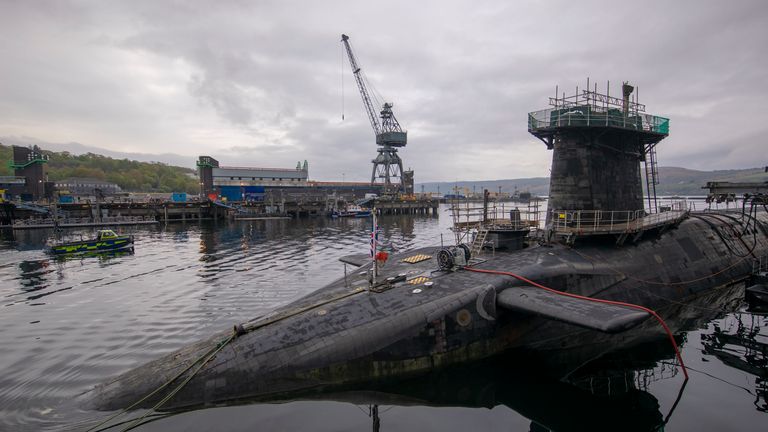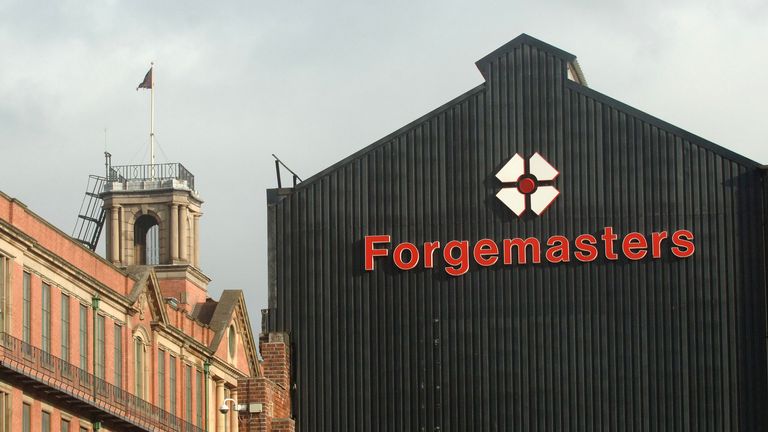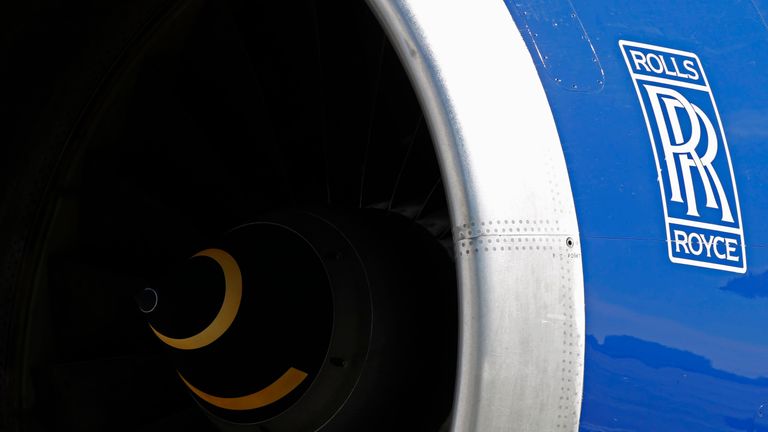Defence chiefs finalise Sheffield Forgemasters takeover
The government is putting the finishing touches to a deal that will see one of Britain’s oldest steelmakers taken into public ownership.
Sky News has learnt that the Ministry of Defence (MoD) is finalising the nationalisation of Sheffield Forgemasters, which plays a critical role in the supply chain of the UK’s nuclear submarine fleet.
The MoD and Sheffield Forgemasters – which traces its roots back to the 1750s – have been in talks about the move for about six months.
Industry sources said the company’s takeover by the MoD could be announced within days.
It would follow years of financial struggles at Sheffield Forgemasters, which had previously turned to industrial giants including BAE Systems and Rolls-Royce Holdings for support.
The commercial terms of the deal were unclear on Wednesday.
UK Government Investments, which manages publicly owned assets, is likely to be involved in the process.
Its completion will reflect the pivotal role that Sheffield Forgemasters plays in supplying specialist components to Britain’s Trident nuclear submarines.
It will also underline the increasingly interventionist approach from the government towards the ownership of assets with national security implications.
The recently introduced National Security and Investment Act includes more than a dozen sectors – including defence and military and dual use – where foreign ownership now requires mandatory notification.
In 2015, Sheffield Forgemasters was approached by an unidentified state-owned Chinese company about a rescue deal, which was ultimately blocked by ministers.
The south Yorkshire-based company’s work for the MoD is shrouded in secrecy, but it is understood to make advanced steel components for Britain’s fleet of Trident-armed nuclear subs.
It has struggled financially for years, with depressed international steel prices hampering margins amid weakened demand.
Sky News revealed in 2016 that three of Britain’s industrial titans – BAE Systems, Babcock International and Rolls-Royce Holdings – had stepped in to underwrite £30m of bank lending provided to Sheffield Forgemasters by the American bank Wells Fargo.
That underwriting commitment is thought to have remained in place for several years.
Last October, Sheffield Forgemasters said it would cut nearly 100 jobs – more than 10% of its workforce – as a result of the coronavirus pandemic’s impact on demand from commercial customers in industries such as oil and gas.
The company, which is now run by David Bond, a former BAE executive, said at the time that it was financially secure until 2022 as a result of its defence work.
The latest accounts for Sheffield Forgemasters International, filed last August, show the group made an operating profit of £1.7m in 2019, despite a major flood event and continuing subdued event.
It said it had won £66m of new contracts during the year, driven mainly by defence orders, which it said would “provide the core revenues of the group through to 2022”.
An asset-based lending facility with Wells Fargo had been extended until the end of next year, the accounts said.
The company’s private shareholders, who are thought to include Graham Honeyman, its former chief executive, are not expected to see a meaningful payout as part of its effective nationalisation.
Last year, defence chiefs took control of the Atomic Weapons Establishment, another key part of the nuclear weapons programme, by terminating a deal with private sector contractors including Serco, the outsourcing group.
Sheffield Forgemasters’ origins are traceable to the 1750s, although its roots are usually said to stem from 1805, when George Naylor set up the Millsands steelworks.
In more recent times, the company has had occasional brushes with political controversy when both Nick Clegg – then a Sheffield MP – and David Cameron were linked to decisions about government grants and loans to it.
An MoD spokesman said: “Sheffield Forgemasters is a strategic supplier to Defence; therefore we are in regular dialogue with them.
“It would be inappropriate to comment further.”
Mr Bond said: “Our long-term relationship with UK Defence prime contractors and the MoD is based on the critical work we do within the Submarine programme and it would be inappropriate to comment further on such commercial sensitivities.”


